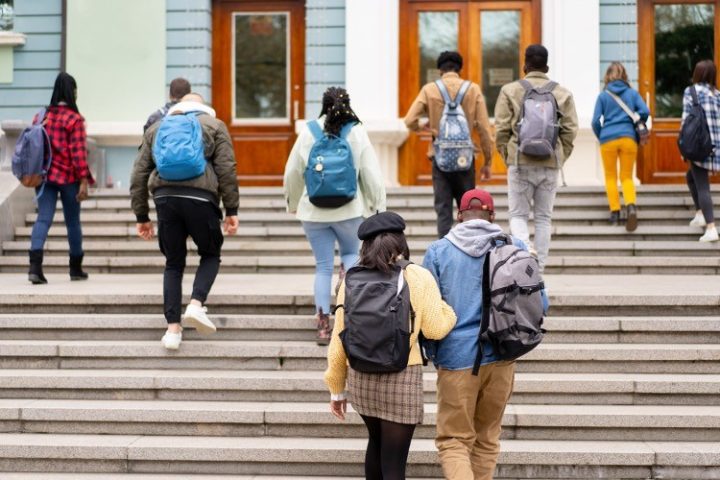
America’s college students say they don’t feel free to speak their minds on campus, yet they largely favor suppression of opinions with which they disagree — even to the point of employing capital punishment against persons espousing such opinions.
That, and many other disturbing trends, were uncovered in the Yale University William F. Buckley Program’s eighth annual student survey. Conducted by McLaughlin & Associates, the poll of 803 undergraduate students also found that the incoming generation of American adults believes their country is inherently racist, socialism is preferable to capitalism, and “diversity, equity, and inclusion” pledges should be a condition of employment.
“The results are scary,” pollster Jim McLaughlin told the Washington Examiner.
Free speech was the major focus of the poll, and the responses were almost uniformly disappointing.
On the positive side, 80 percent of students believed that the First Amendment is “important” and “still needs to be followed and respected in today’s society.” However, for the first time in the survey’s history, a plurality (48 percent) disagreed with the statement that “hate speech, no matter how racist or bigoted it is, is still technically protected under the First Amendment as free speech”; only 44 percent agreed.
Students were also greatly conflicted when it came to restricting speech on campus.
Record numbers of them said they felt “intimidated” when expressing their opinions in class out of fear of either professors (58 percent) or peers (63 percent); a significant majority (68 percent) favored encouraging free speech on campus over preventing offensive speech; and a slim plurality (45 percent to 41 percent) opposed campus speech codes.
At the same time, they argued for restricting certain types of speech. A majority (51 percent) agreed that “there are certain issues that school administrators or professors should prohibit from being debated on campus.” Forty-three percent said political opinions their fellow students expressed with which they disagreed should be reported to administrators; 48 percent differed.
Worse still, students had no problem recommending intimidation, and even violence, as the “solution” to dissenting opinions. Forty-four percent agreed that “it is sometimes appropriate to shout down or disrupt a speaker on my campus,” and 41 percent concurred that violence is sometimes justified to prevent someone from expressing “hate speech.” When asked if “some speech can be so sensitive that it merits” the death penalty, 48 percent of students agreed, while just 38 percent demurred.
As McLaughlin put it, today’s college students “support free speech until they disagree with it.”
Students are fully on board with the notion that America is a racist society. Half of them said the country “is inextricably linked to white supremacy,” and 78 percent agreed that “systemic racism is a big problem in society today and white people still contribute to it, whether they realize it or not.” Perhaps for that reason, they also believe, 65 percent to 24 percent, that people should be denied jobs if they refuse to sign statements favoring “diversity, equity, and inclusion.”
Asked which economic system they would prefer to live under, 33 percent of students said they’d choose socialism, while 31 percent opted for capitalism and 35 percent were unsure.
For all the far-left opinions they espouse in theory, however, students are considerably more conservative when said opinions conflict with their own interests and observations.
This is particularly true in the area of gender. Although 51 percent of students said their school “should require that students, professors, and faculty state their preferred gender pronouns when introducing themselves,” just 27 percent of them actually do so. Almost three-fourths of students (74 percent) actually agreed that “there are natural and inherent differences between men and women,” 49 percent said athletes should not be permitted to compete in events with the opposite sex, and 45 percent favored state laws “restricting discussion about gender identity and sexual topics for children under 10 years old in public schools” (44 percent opposed).
Students are also less likely to put theory into practice when it comes to their own economic interests. While 56 percent of them considered themselves privileged, only 49 percent said they would “be willing to give up a position or job opportunity for another individual who is less privileged.”
There isn’t much to like in this survey, but the few bright spots suggest that as students enter the real world, they may be forced to moderate their positions to conform to reality. If not, the United States could be headed for its own Cultural Revolution.



